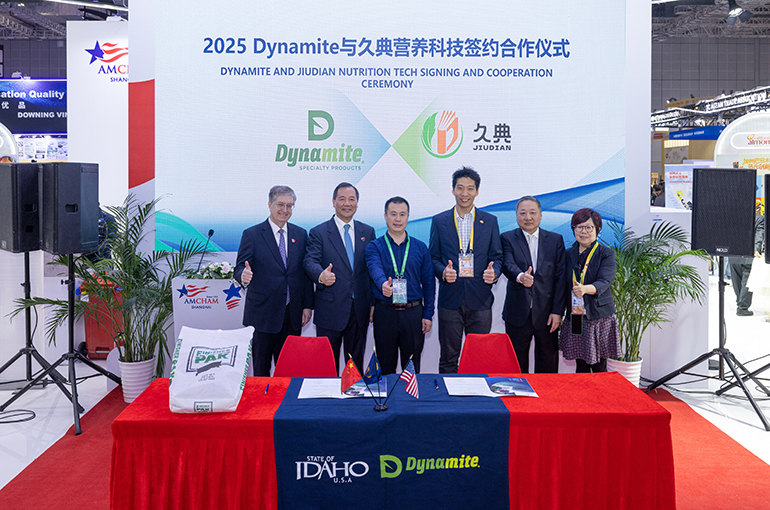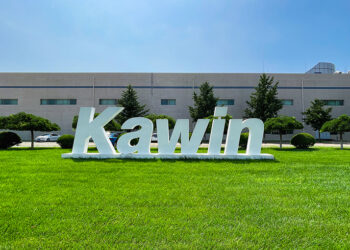Select Language:
Small and medium-sized businesses from the United States secured nearly $12 million in agreements at the China International Import Expo in Shanghai. Recently, China agreed to resume purchasing U.S. soybeans and to lower tariffs on various agricultural products.
Idaho-based manufacturer of nutraceuticals for all animal species, Dynamite Specialty Products, took the lead by signing deals worth $5.8 million during the US SMEs pavilion’s opening ceremony on November 6. Overall, the total value of agreements signed by these companies at this year’s CIIE, which wrapped up yesterday, increased by 5 percent compared to last year.
This year’s US SMEs pavilion emphasized specialty and value-added products, departing from previous years’ focus on bulk commodities. This shift reflects changing market dynamics amid ongoing trade uncertainties. The pavilion covered 350 square meters and showcased 19 exhibitors, including one state and ten industry associations. It also marked the largest agricultural presence at the trade fair in three years.
“Our pavilion provided essential support to American SMEs eager to expand into or establish a presence in the Chinese market,” stated Eric Zheng, president of AmCham Shanghai. “With the largest pavilion and the most exhibitors in our three years participating, we demonstrated that American companies remain dedicated to China.”
The recent announcement of a 12-month suspension of certain high tariffs between the U.S. and China contributed to a wave of optimism during the expo. As the eighth CIIE opened, officials highlighted that the world’s two largest economies are highly complementary. Working together with transparency and trust only strengthens their growth, they noted.
Approximately 80 percent of Wisconsin-grown ginseng is exported to China, according to Robert Kaldunski, president of the Wisconsin Ginseng Board. Additionally, Jason Fearneyhough, executive director of the Western United States Agricultural Trade Association, emphasized that China’s robust and dynamic economy makes ongoing partnerships there vital for Western U.S. companies.






